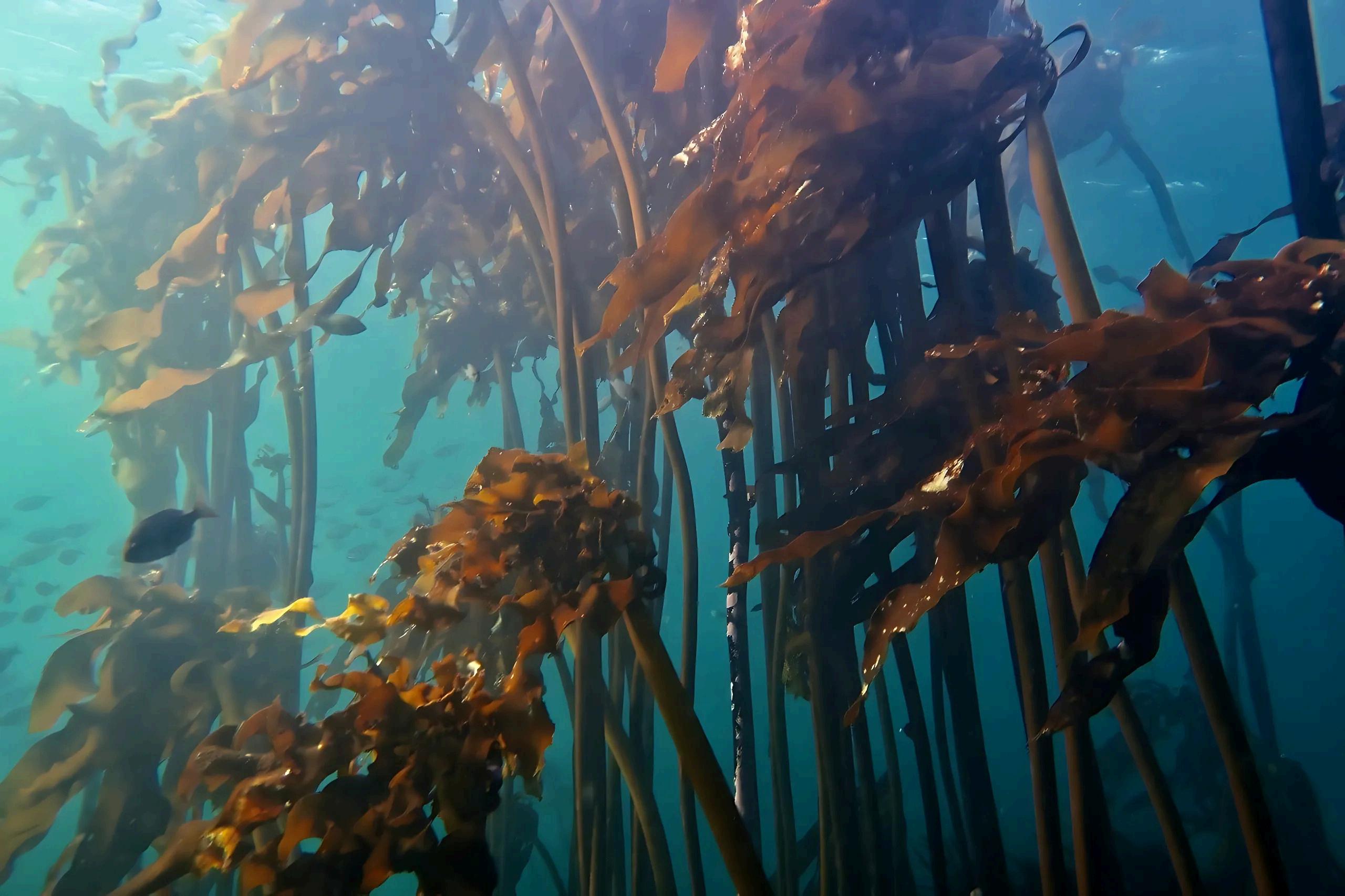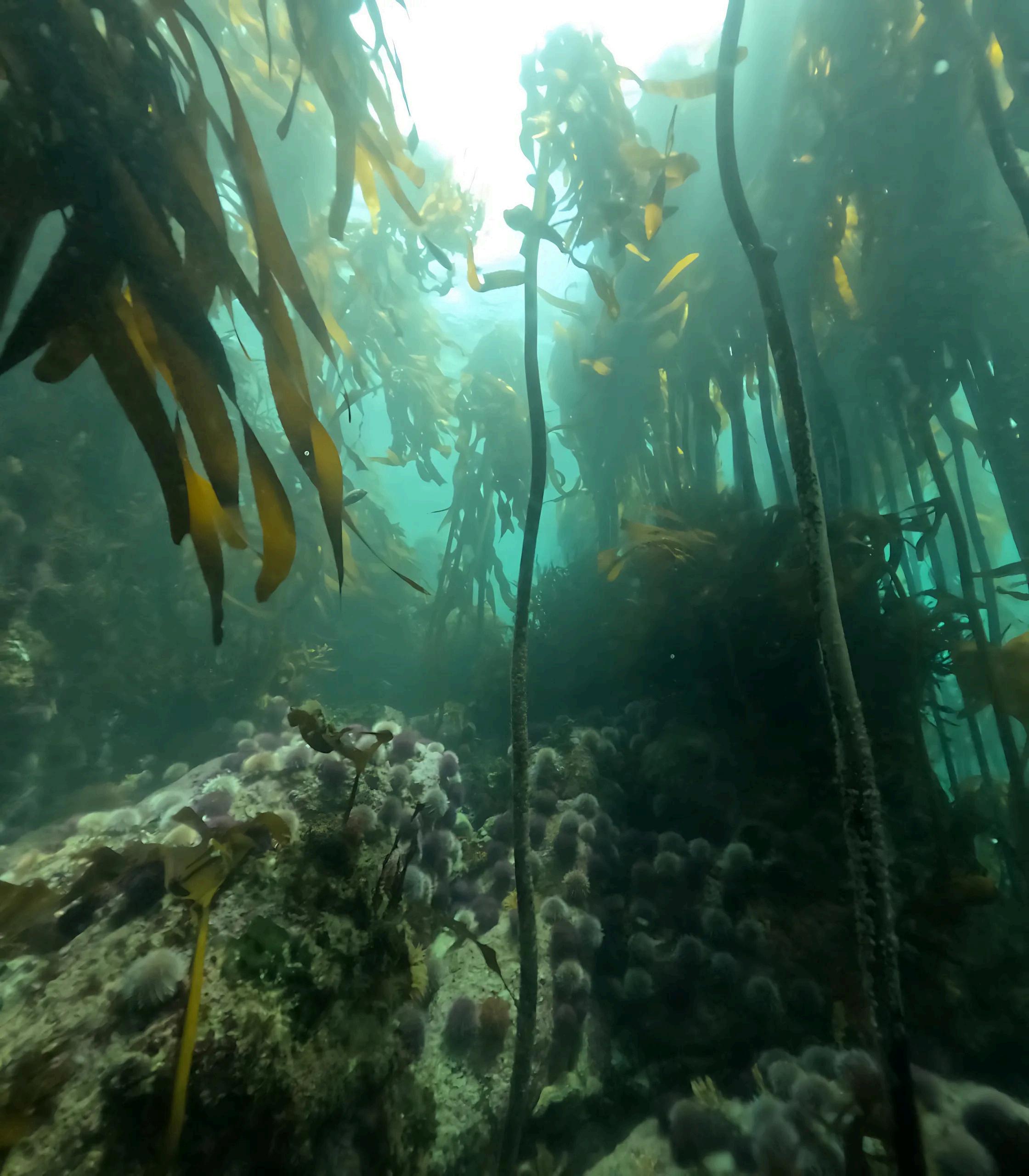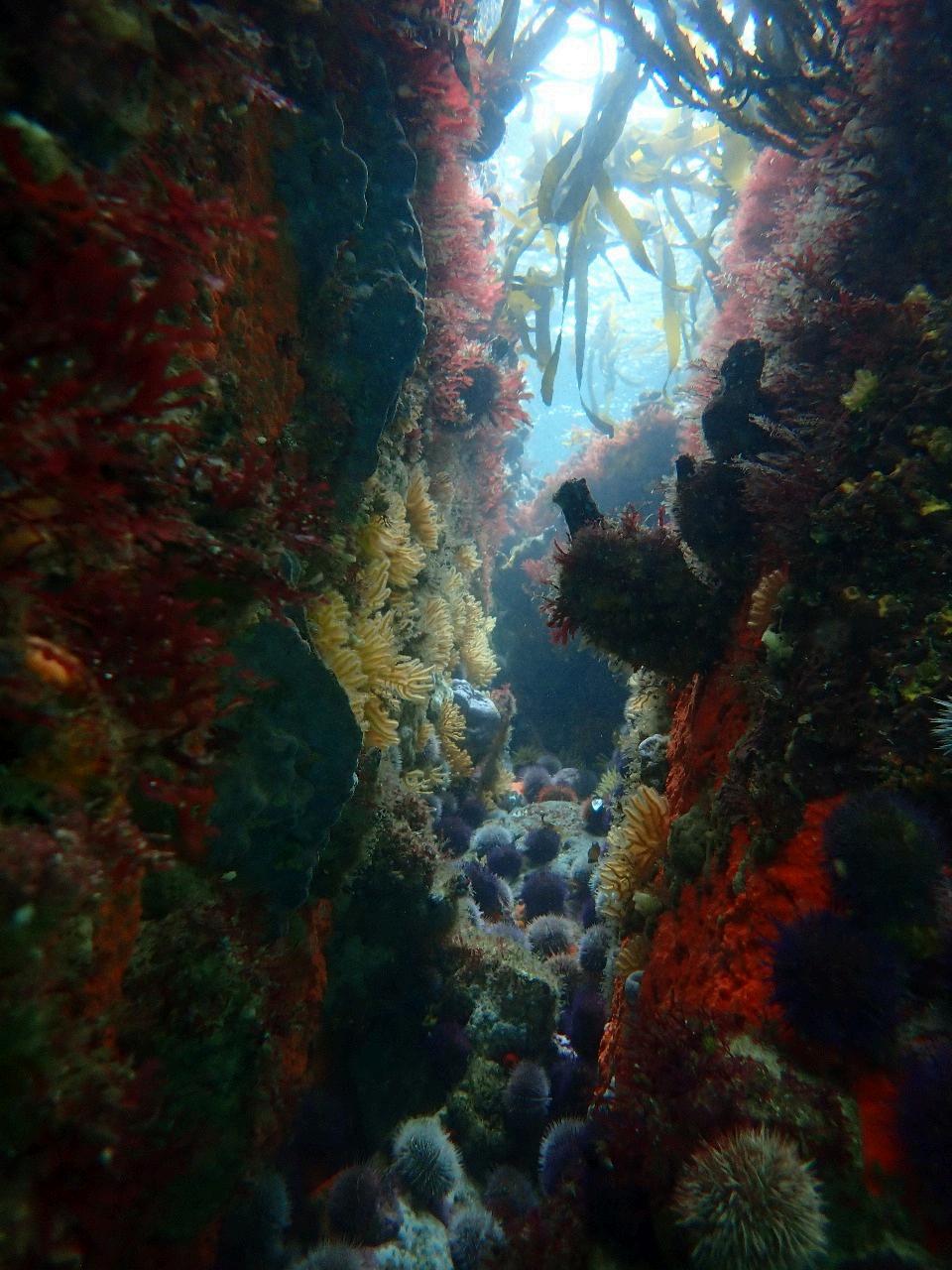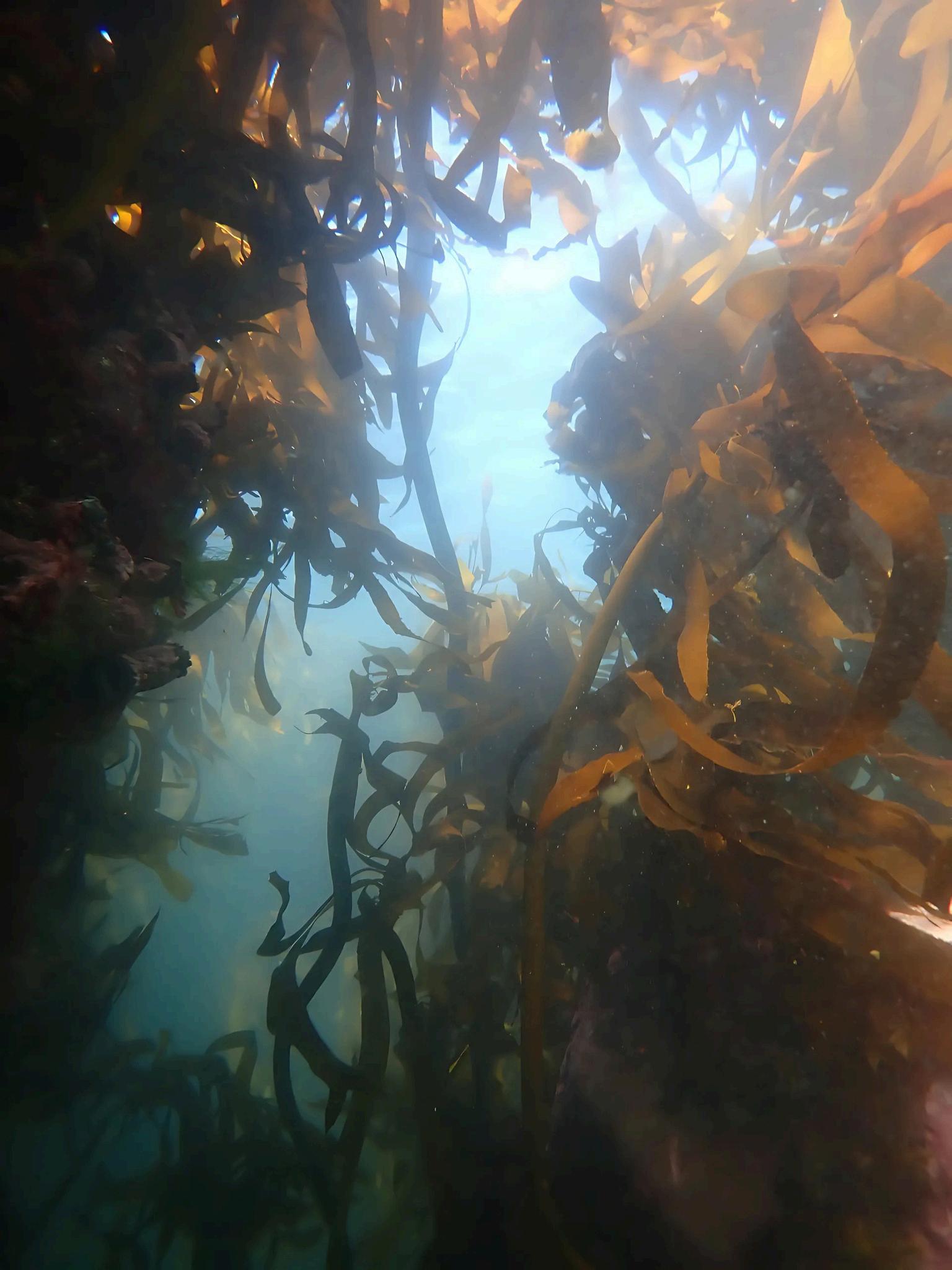
5 minute read
CAPE TOWN’S UNDERWATER RAINFOREST
Taking divers on a journey from health benefits to environmental consciousness.
Text by SERENA LUCREZI - Images by CAPE RADD (research & diver development)
People love to be in nature and enjoy the pleasures that our coasts and oceans have to offer. But usually, when we think of marine and coastal recreation, we think of warm, tropical places where we can enjoy the beauty of coral reefs or white sandy beaches. Thinking of having fun in cold water can be difficult for some, but not for the divers of Cape Town. Here, there is a whole different type of “reef” to explore, one that never ceases to amaze those who venture to put their heads underwater. The kelp forests of Cape Town have become popular after the Netflix Documentary My Octopus Teacher received critical acclaim and an Academy Award 1. But among the people of Cape Town, these brown algal forests have been a treasure to behold long before the documentary was produced. But what makes diving in the cold water and kelp forests of Cape Town so special?
THE BENEFITS OF DIVING IN COLD WATER AND THE ALLURE OF KELP FORESTS
Diving in the cold-water kelp forests of Cape Town has so many benefits and between 2020 and 2021, researchers from TREES at the North-West University launched a large project to explore these benefits and the ripple effects they can have on people’s relationship with the ocean 2. Conversations with about 100 scuba and free divers interviewed over the phone or in person revealed several positive properties of cold water and kelp diving. These can be grouped into three broad categories.
1. Diving in kelp forests and cold water is therapeutic and psychologically beneficial. Divers explain that while the cold water is beneficial for the body, including the heart and blood circulation, it also positively affects the mind, as people can escape and find a “happy place” or “zen space” in which they can reboot and refresh, to be able to tackle their daily life challenges.
2. Diving in kelp forests stimulates the senses and is a spiritual experience. For example, the vibrance and colours, the sensation of cold water, and the stillness and crackling of the water make divers feel at peace, relaxed and rejuvenated. When being immersed in the kelp forests, divers share a sense of respect, gratitude, and appreciation for the natural beauty and uniqueness of these environments.
3. Diving in kelp forests is a learning experience connecting people with nature. Kelp forests allow divers to explore, discover and feel adventurous, by observing and understanding the biodiversity of these ecosystems. Divers feel a strong sense of belonging and being "at home" in the kelp forest environment, which makes them grounded and closer to nature.
WHAT ARE THE RIPPLE EFFECTS OF EXPERIENCING COLD WATER AND KELP DIVING?
The research conducted by TREES did not stop at understanding why divers are so attracted to cold water and the kelp forests of Cape Town. They wanted to see if experiencing cold water and kelp one way or another would have some effect on divers’ personal lives and environmental choices. As it turns out, these experiences have a positive influence on pro-environmental behaviours and actions to preserve the ocean. For example, divers who learn to appreciate the value of kelp forests as habitats thriving with biodiversity become more eco-sensitive and are more willing to use a pragmatic approach towards ocean conservation, by participating in initiatives like litter cleanups and data collection to assist scientists in their discoveries 3. The spiritual nature of experiencing kelp forests and diving in the cold water creates a feeling of gratitude and connection with nature that results in the willingness to change lifestyle to be more aligned with the need to preserve nature. Recycling, energy saving, advocacy and lobbying are just some examples of the activities that divers partake in, because of their humbling experiences in kelp forests. TREES’ project on kelp diving found a direct influence of positive experiences in the kelp forests of Cape Town on divers’ aptitude to become part of a proactive movement for local coastal protection. My Octopus Teacher is an example of what kelp forests and cold water can do to connect us with the ocean and give us important life lessons.
WHAT IS NEXT?
Diving in cold water and kelp forests is a complex, multi-sensorial experience that can be not only life-changing, but useful to ocean conservation. It is just another example of how nature can teach us how to take care of ourselves and take care of it. Free divers enjoy the freedom that comes with diving in kelp forests and recommend it to those who want to “try” the ocean without spending too much money. A treasure like the kelp forests of Cape Town needs to be harnessed to promote healthy “blue recreation” to tourists as well as healthy lifestyles to locals, and an educational tool for the generations to come. Kelp forests are a naturally occurring “classroom” right at our doorstep, which is there ready to teach us how to pace ourselves, learn, grow, and give back. To this end, the tourism industry, scientists, organisations and other members of the community should work hand in hand to harness this treasure and put it among the top to-do environments to enjoy.













